|
COVID-19 has been particularly difficult on the finances of Canadians. Millions of people were laid off, causing not just financial hardship but severe mental distress. The crisis has also underscored the struggles some Canadians have with financial literacy.
Today in The Conversation Canada, we have two analyses on these important issues. One, from Alex Bierman of the University of Calgary and three co-authors, details a survey they conducted of Canadian workers who were laid off at the onset of the pandemic in March 2020 and their follow-up interviews in subsequent months. Their findings showed that the pandemic was much more devastating for Canadians who were already grappling with financial and anxiety issues.
Gail Henderson and Pamela Beach of Queen’s University also make the case today for financial literacy education in schools. This idea has support from both governments and teachers, they note — but based on their findings, teachers need professional development to support their efforts to teach financial literacy.
Also today:
|
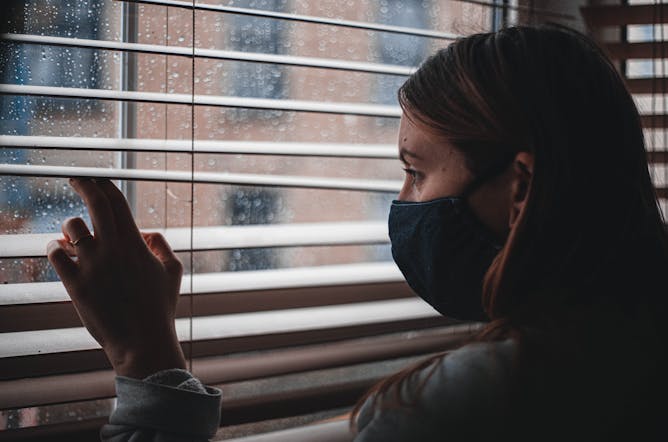
COVID-19 lockdown measures have been much harder on those with pre-existing anxiety issues or in lower-income demographics.
(Unsplash)
Alex Bierman, University of Calgary; Laura Upenieks, Baylor University; Paul Glavin, McMaster University; Scott Schieman, University of Toronto
Canadians who had poor finances and health were more likely to report financial stress across the first several months of the pandemic.
|

How quickly people recover financially from the COVID-19 crisis,or lose the gains they made, may depend on their level of financial literacy.
(Shutterstock)
Gail Henderson, Queen's University, Ontario; Pamela Beach, Queen's University, Ontario
Teaching financial literacy requires more than adding financial literacy to kids' school curriculum. It also means offering teachers professional development to ensure they're equipped.
|
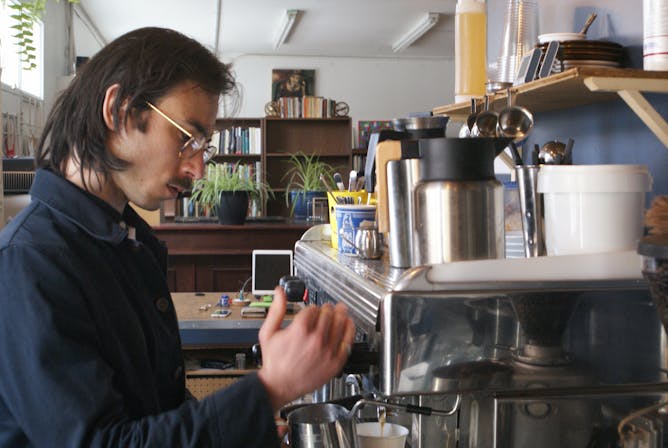
Jordan Vannier, a French citizen who recently became a Canadian permanent resident, makes coffee at the Loophole, a cafe he co-owns in Calgary.
(Bryony Lau)
Bryony Lau, University of Toronto
The pandemic has led some people on working holiday visas to apply for permanent residency, while others are going to stick out their two years and head home.
|
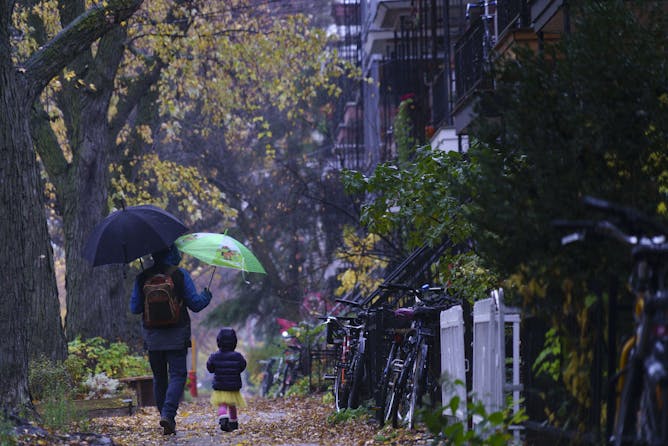
Montréal father Dominic Desilets walks his daughter Benedicte to daycare on a rainy morning on Oct. 26, 2020.
(THE CANADIAN PRESS/Paul Chiasson)
Iris Berger, University of British Columbia
Child care in Canada needs a major overhaul to improve working conditions for educators by increasing pay and investing in training and professional development opportunities.
|
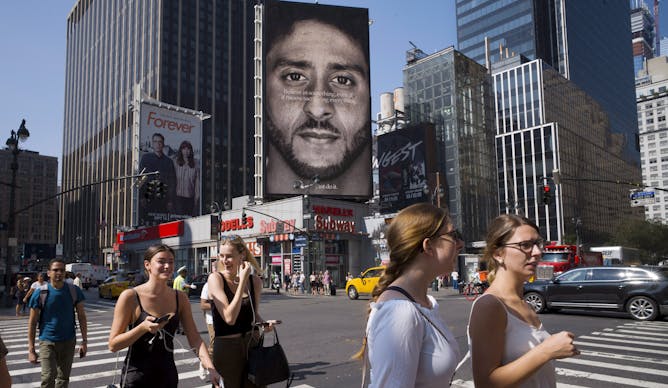
Nike ad in New York in 2018, showing former San Francisco 49ers quarterback Colin Kaepernick after his 2016 kneeling protest. Could a corporation sell an act like Kaepernick’s ‘kneel’ as an NFT?
(AP Photo/Mark Lennihan)
Lowell Gasoi, Carleton University
When we see the high prices some are paying for NFT art, we must assume more performances, and potentially, acts of protest, could circulate as NFTs.
|
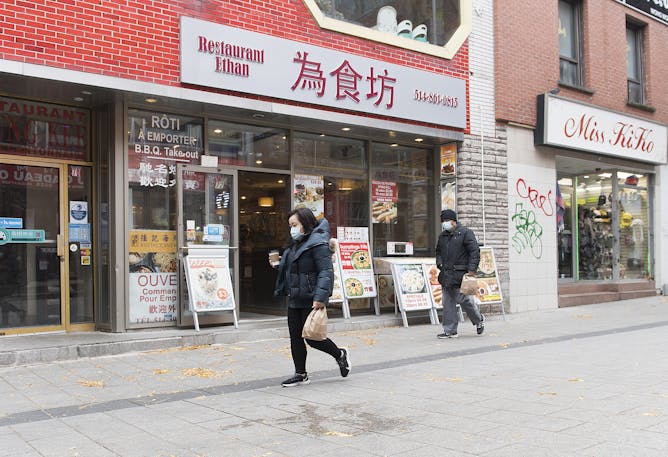
Des personnes marchent dans une rue du quartier chinois de Montréal, dimanche 1er novembre 2020. Une campagne intitulée «Bonne fortune et solidarité», dont l'objectif est de lutter contre le racisme anti-asiatique et de ramener les clients dans le quartier, a été lancée par les commerçants du quartier.
LA PRESSE CANADIENNE/Graham Hughes
Mary Chapman, University of British Columbia
La journaliste sino-canadienne Edith Eaton a documenté le racisme anti-asiatique au Canada à la fin du 19ᵉ et au début du XXᵉ siècle. Plus de 100 ans plus tard, peu de choses ont changé.
|
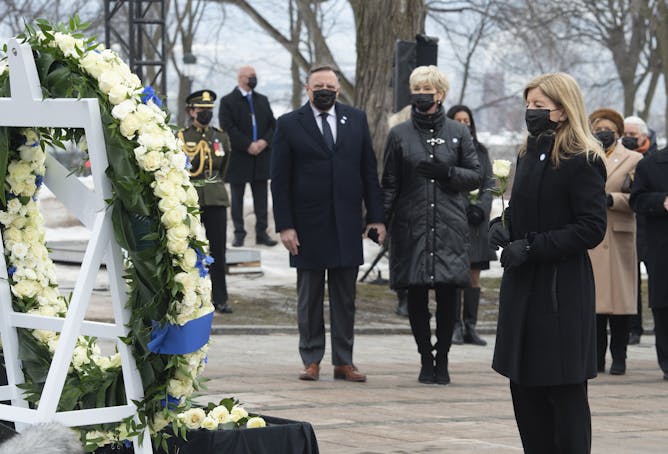
Lucie Garneau, à droite, qui a perdu son père Lucien Garneau en raison de la Covid, tient une rose devant une couronne de fleurs lors d'une cérémonie pour les victimes de la Covid-19, le jeudi 11 mars 2021, à l'Assemblée nationale de Québec. Le premier ministre du Québec, François Legault, et son épouse Isabelle Brais étaient sur place.
LA PRESSE CANADIENNE/Jacques Boissinot
Jacques Cherblanc, Université du Québec à Chicoutimi (UQAC); Chantal Verdon, Université du Québec en Outaouais (UQO); Geneviève Gauthier, Université du Québec à Chicoutimi (UQAC)
Le fait que les endeuillés de la pandémie aient été empêchés de réaliser des rituels funéraires ne présume pas forcément de leur capacité à faire leur deuil à long terme.
|
|
|
Health
|
-
Luise Kazda, University of Sydney
How do you know if your child's behaviour is normal or a sign of ADHD? The answer is not so clear cut. And now we have the evidence to show the consequences.
|
|
Science + Technology
|
-
Sarah DeGenova Ackerman, University of Oregon
Adaptable neurons are tied to learning and memory but also to neurological disorders. By studying fruit flies, researchers found a mechanism that controls neuroplasticity.
|
|